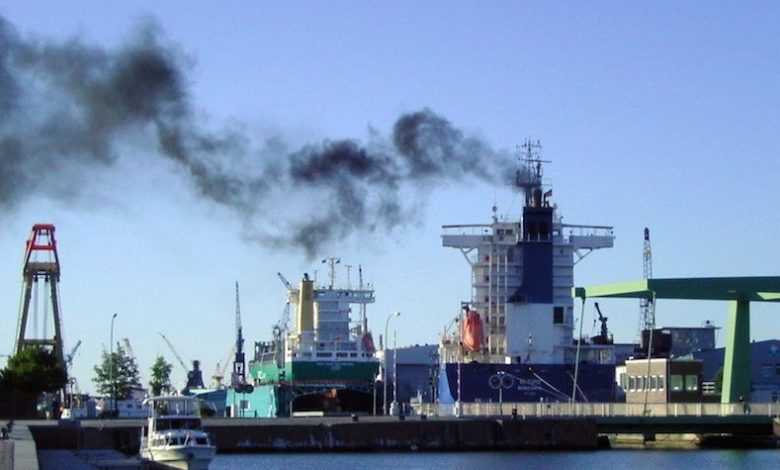Cleaner fuels are looking messy for marine cargo insurers

Gray Page’s James Wilkes reports from last month’s International Cargo Insurance Conference.
If you work in shipping and you read the news, it cannot have escaped your attention that from January 1 2020 the permitted amount of sulphur in marine fuel oil will fall from 3.5% m/m (mass by mass) to 0.5% m/m, globally.
If you are not aware of #sulphur2020, then where have you been? One possibility is on secondment in the marine cargo insurance market.
Last month, the International Cargo Insurance Conference (ICIC 2018) convened for a fifth year in the stately splendour of Heythrop Park, Oxfordshire, UK.
The 230-plus delegates at the conference came from around the world. A substantial number of them work for insurance brokers and underwriters in the London marine cargo market.
Understandably, the conference agenda is influenced largely by current cargo insurance market issues.
Amongst them this year were the causes of the very palpable tension between brokers (who are making money), and underwriters (many of whom are not); as well as how technology is changing the market place and how business is transacted.
Subjects such as underwriting discipline (the general lack of it); broker power (too much of it, unless, of course, you’re a broker), policy wordings (in need of overhauling), as well as Insuretech and blockchain (which most people pretend to understand but don’t), got a good airing.
That was all to be expected.
What the conference attendees weren’t expecting to hear, apparently, was that in less than 18 months’ time environmental regulations will come into force that will have the most profound effect on shipping since…. well, you choose your own aphorism to finish the sentence.
The second session of the conference was entitled ‘Back to the Future’ and its speakers – an insurance broker, an underwriter, a lawyer and me – were giving air to some thoughts on what might be noteworthy issues coming down the line for the cargo insurance market.
I chose #sulphur2020 because in preparing for the conference it struck me that in everything I had read, heard and discussed about it prior to the conference, one could be forgiven for thinking that the sulphur cap regulations is exclusively a shipping issue.
But, it’s not. Something that affects shipping so significantly will, by extension, affect cargo shippers too. And by default, it has serious implications for cargo insurers as well.
As things stand right now, insurers have until January 2 2019 – if not sooner – to work out how their cargo policies are going to respond in a range of situations.
Why January 2 2019? That is because most cargo policies are written on an annual basis and cover can be bound at any time of the year.
What situations?
Well, firstly, by common agreement, one of the consequences of the sulphur cap is that freight rates will have to increase. Ship operators cannot swallow the billions of dollars of additional operating expenses or capital expenditure that will be incurred without passing it on to shippers.
It is widely accepted that because of the levels of debt in many shipping sectors, some operators will collapse financially. For any chance of survival, freight rates have to go up and go up substantially.
As it will cost more to ship cargo, the risk exposure of cargo insurers will increase. The corollary of that, you would think, is that cargo insurance premiums will increase too.
Secondly, if voyages are frustrated due to the lack of compliant fuel at a bunker port, or fuel compatibility leads to breakdowns, what will the cargo claims look like?
What happens to cargoes that are subject to multiple-port discharges and the port at which a ship had arranged to lift bunkers has run out when it gets there?
How long will the wait be? What if it is weeks? What if it’s a ‘just in time’ cargo that will need to be replaced before it has been re-scheduled to arrive?
Marine cargo insurers could be looking at constructive total loss (CTL) claims similar to those arising out of Maersk Honam. The cargo is fine, but due to an issue on route the delay will render its shipment pointless.
It’s difficult to say what the answers for marine cargo insurers are. There are very few ‘knowns’ about what will happen when the regulations come into force on January 1 2020.
One option for insurers, at least in the short term, is to introduce wordings into new cargo policies that exclude claims arising out of losses due to #sulphur2020 bunker fuel issues.
Another option for insurers is to accept the risks but increase their premiums massively, reflecting that no one has any idea what the levels of exposure might turn out to be.
Neither option is likely to sit well with shippers seeking to insure their ocean-borne cargoes.
Prior to ICIC 2018, I hadn’t heard much from the marine cargo insurance market on the issue of #sulphur2020. Sorry, let me correct that – I hadn’t heard anything from cargo insurers about it.
I have now.
For whatever consequences the sulphur regulations have for shipowners and operators, there will be consequences for cargo shippers and their insurers too.
The world will be getting cleaner bunker fuel oils, but some things stand to get messier in the process.
